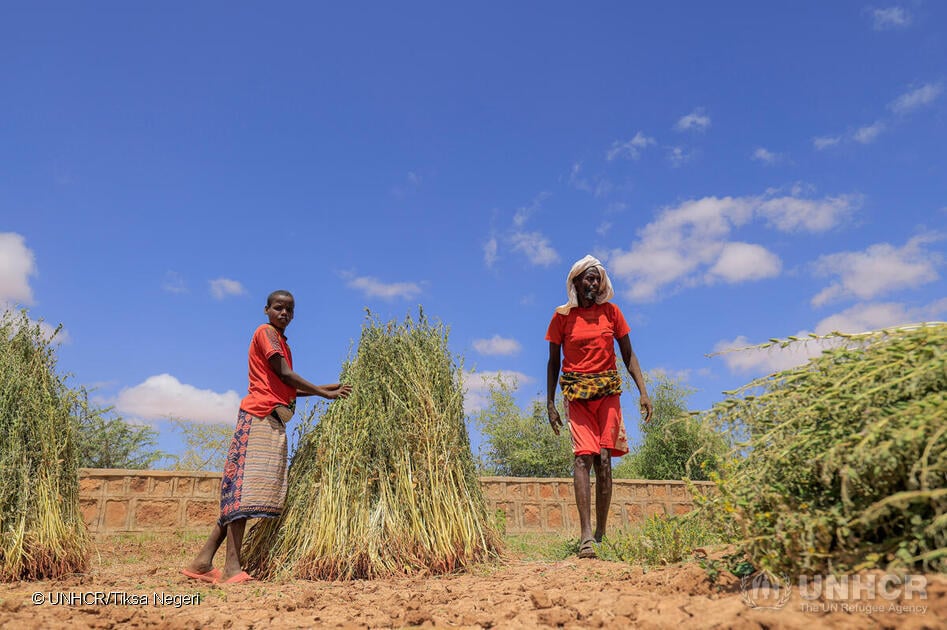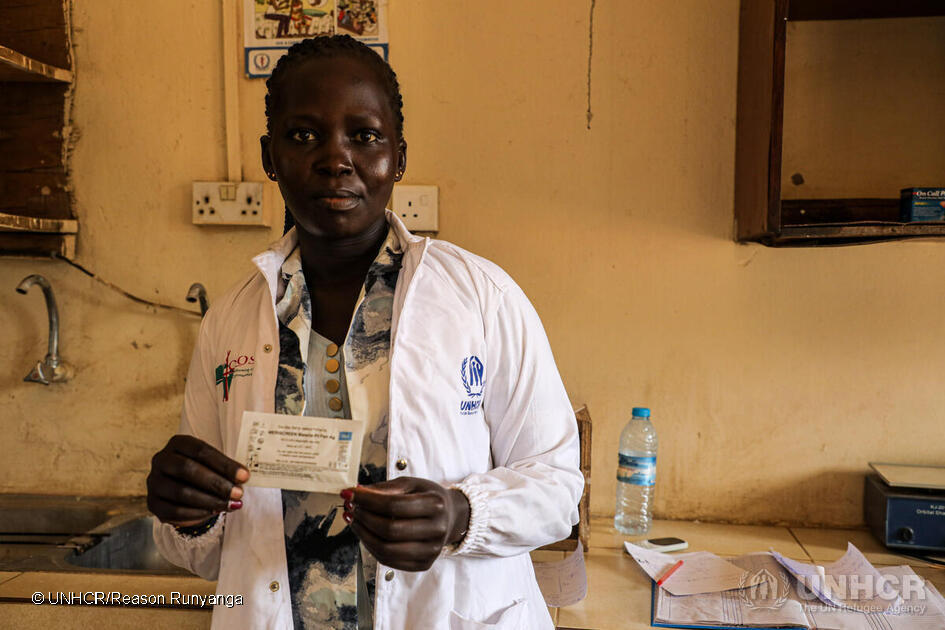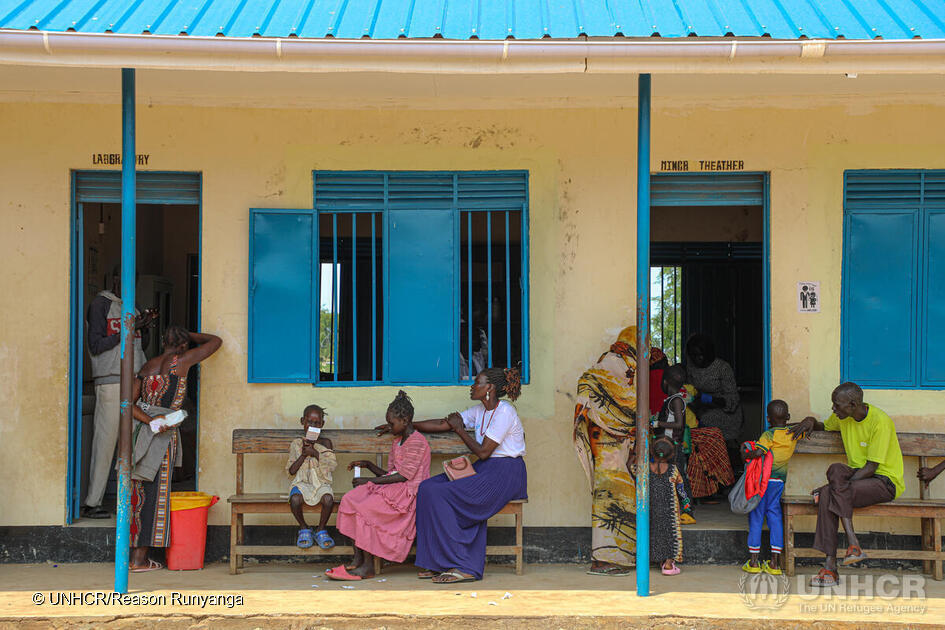By Jed Fix, Masud Rahman, Dr. Atinkut Mezgebu Wubneh, and Alessandro Nava

In the East, Horn, and Great Lakes (EHAGL) region, refugee inclusion is increasingly recognized as a critical factor in sustainable development. UNHCR is at the forefront of these efforts, working with governments and partners to support the collection, analysis, and application of socioeconomic data to shape effective responses. By integrating refugees into national data systems and using evidence-based approaches, policymakers can better address vulnerabilities, promote sustainability, and ensure inclusive economic opportunities.
Integrating Refugees into National Statistical Efforts
One of the most significant steps toward inclusion is integrating refugee populations into national statistical efforts. Reliable data enables policymakers to understand refugee demographics, assess vulnerabilities, and design policies that promote self-reliance.
In 2024, refugees were newly included in census and survey efforts in Burundi, Djibouti, Ethiopia, Rwanda and Uganda. This milestone ensures that refugee needs are reflected in national planning processes and that host governments have access to accurate data for effective policymaking. In Rwanda, a brief published by the National Institute of Statistics (NISR) presents one of the first complete socioeconomic profiles of the refugee population, which is used to drive efforts around economic and financial inclusion and integrated settlements.
Economic Inclusion: Understanding Refugee Livelihoods in Ethiopia
Understanding refugee livelihoods and economic participation is essential for designing effective support programs.
In Ethiopia, results from a recent survey effort with the World Bank and Ethiopian Statistical Service highlight an “economic-inclusion dividend.” When refugees are allowed to work and move on par with host communities, their incomes rise, and assistance needs fall—from approximately US$210 today to an estimated US$78 per year.
Survey results also indicate strong host community support for refugee inclusion:
- 65% of Ethiopian hosts think refugees are good people (85% among hosts near Somali refugees).
- 87% support refugees’ access to free primary education and healthcare.
- Around 70% believe refugees have increased local economic opportunities.
This data played a key role in shaping policy decisions—notably, it helped to assure the Government of Ethiopia to issue its new refugee work Directive in 2024 and to pave the way for its Makatet Strategy, which aims to integrate refugees into national systems, ensuring self-reliance and socioeconomic inclusion.
Tracking Returns to South Sudan to Monitor Reintegration Efforts
In response to the increasing influx of refugees and returnees from Sudan due to the ongoing conflict, UNHCR invited IOM and the Government of South Sudan to establish joint border monitoring and strengthen data collection. This initiative provides real-time information on the number, conditions, and immediate protection needs of returnees, supporting partners’ response efforts.
Returnee monitoring enables the systematic collection of data on protection concerns and returnees’ perceptions of conditions in areas of return—including safety, security, access to basic services, infrastructure, and livelihoods. Additionally, analyzing trends in onward and pendular movements helps assess the sustainability of returns and the effectiveness of reintegration support.
This collaboration has led to the development of a joint dashboard offering live updates on inflows and returnee intentions. The data informs the identification of protection, rehabilitation, reintegration, and early recovery needs, guiding efforts to provide targeted assistance. Moreover, it is critical for shaping reintegration programming within national, regional, and local development frameworks.

Measuring Reintegration and Service Capacity in South Sudan
In South Sudan, UNHCR and the consultancy Samuel Hall, with support from the European Union, partnered to develop a new approach to measuring the reintegration of refugee returnees and the absorption capacity of services in areas receiving them.
Surveys of health and education facilities and water points help assess the availability and quality of services, identifying areas in need of investment – key to area-based responses.
In Aweil, a northern locality hosting many Sudanese and South Sudanese affected by the Sudan conflict, healthcare capacity is already constrained, operating at maximum service levels (76,923 individuals per primary healthcare unit and 114,160 individuals per county hospital)
Indicating a need to manage service demand carefully, the data also reveals an opportunity: restructuring three of the nine existing medical facilities-which currently do not meet minimum standards-could improve cost-effectiveness and service delivery.
This information is actively informing discussions with the World Bank, UN Habitat and the European Union on priority investments to address the Sudan crisis.

Data-Driven Advocacy and Policy Influence
Data-driven advocacy is instrumental in shaping national and international policies. Information from the OECD on comprehensive financing for refugee situations, along with new resources from the World Bank and UNHCR on the costs of inclusion, provides a clearer picture of financial needs and opportunities.
Additionally, new research projects under the Innovations for Poverty Action Displaced Livelihoods Initiative holds promise for generating actionable intelligence to further refugee inclusion efforts.
The Power of Data in Refugee Inclusion
The examples above demonstrate that high-quality data is critical to shaping effective, evidence-based refugee policies. By integrating refugees into national statistical efforts, designing policies based on socioeconomic data, and using research to guide advocacy, governments and international organizations can foster self-reliance and promote inclusive development.
As new challenges emerge, such as displacement due to conflict in Sudan, data-driven approaches will remain key in ensuring that both refugees and host communities benefit from well-informed, sustainable policies. Continued collaboration between UNHCR, governments, and development actors will be essential to maintaining momentum and expanding inclusion efforts across the EHAGL region.
